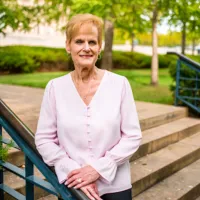
It’s High Time to Commit to New Relationships Instead of Survival
We have all heard the startling statistics on the mounting mental health crisis such as these:
Anxiety disorders: 42.5 million Americans, including 4.5 million children, suffer from anxiety disorders, the most commonly reported mental health issue
Depression: Women experience depression at about twice the rate of men
Serious mental illness: Costs the country more than $190 billion in lost earnings each year
Loneliness, isolation, and disconnection are often key indicators or symptoms of mental health challenges. “Dr. Vivek Murthy, the Surgeon General of the US, speaks about the epidemic of loneliness now being the biggest challenge facing the US economy, and it is creating more mortality and morbidity than smoking a packet of cigarettes every day.” While we are electronically more connected than ever, we are socially and relationally more disconnected than ever before.
Churches have a natural knack for relationship building, right? Afterall, isn’t building relationships at the very core of what the church is all about? Unfortunately, churches are often distracted by their programs and events (the doing) and fail to remember the purpose (building relationships with people and sharing Jesus). It’s the classic Martha versus Mary struggle!
What if the church began to think of themselves more as a relationship depot for the community? How would our community be positively impacted if church leaders set out to understand some of their community’s common denominators to bring people together in a variety of relationships? The church could become a place for people to find community – meaningful relationships and connections.
But please notice the shift offered here. The focus is on helping people find community – not on increasing the number of butts in the pews and bucks in the offering plate. The focus is helping people overcome loneliness and isolation – not on reversing church decline. The focus is a holistic approach of well-being for your community – not on building the church’s Sunday morning attendance. The focus is on loving the people of your community first and foremost – not paying off the church’s building debt. This shift of “why” is critically important for both the community and the congregation. It’s my belief that when the “why” starts on loving others first, the rest will take care of itself.
As you think about creating flourishing communities, how might you see your church participating? As you consider the natural human desire for connection, nurturing relationships, and extending care to others, how might your church respond to this need in your community? How might shared experiences be a starting point for building new relationships with neighbors?
Would your church like to shift its focus to becoming a relationship depot? Would your leaders like some help in developing a plan for how to make this happen? If so, consider joining our brand new cohort experience launching this fall. Click here to be the first to hear all the details and the first to reserve your seat.

